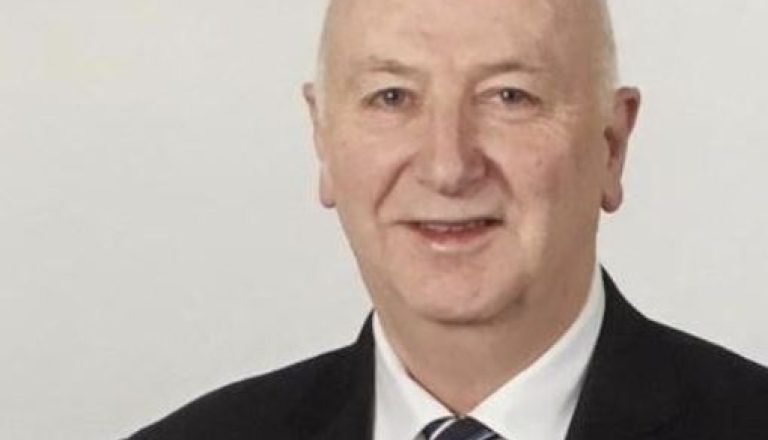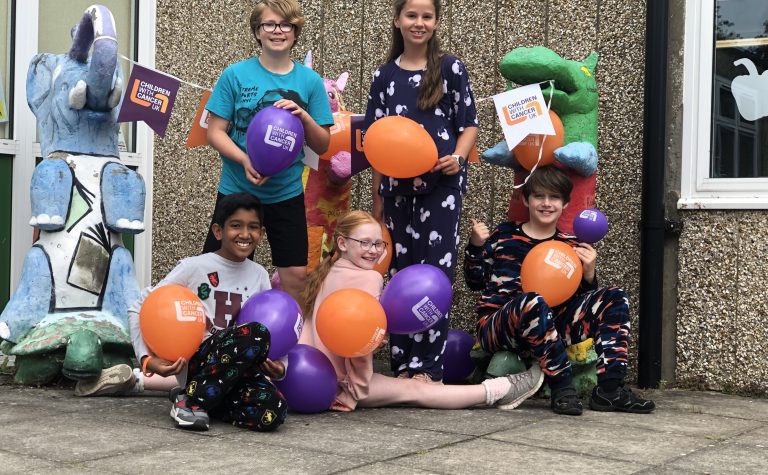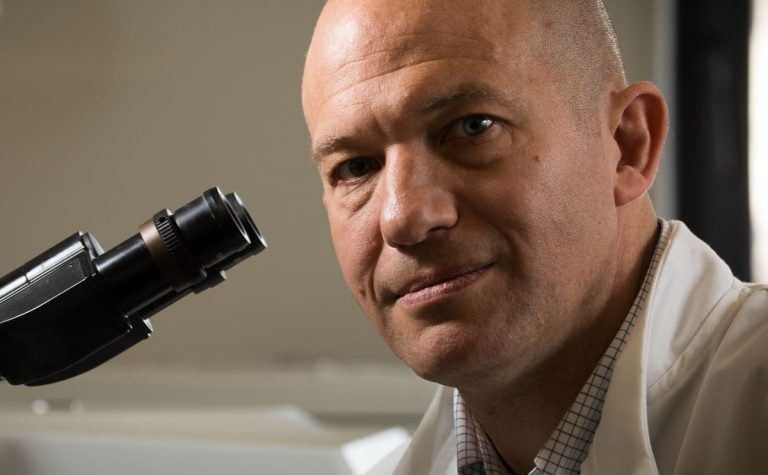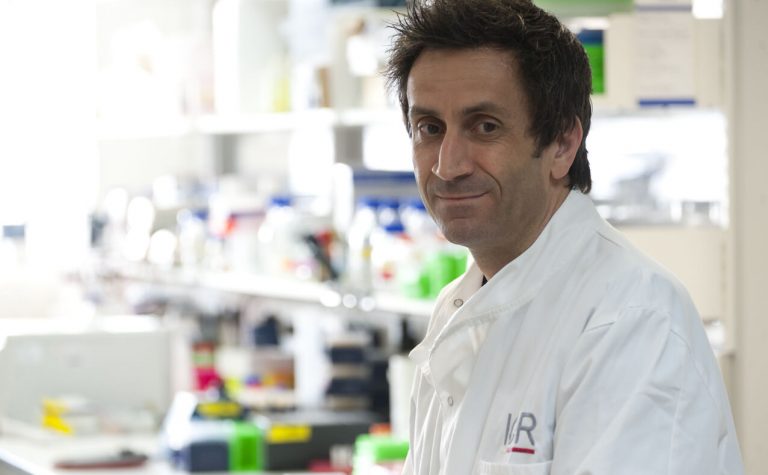We spoke to Dr John Murphy, as he talks about his research project which aims to execute an exploratory pilot study to enable development of improved drug therapy for childhood bone cancer.
Q: How and why did you become a researcher?
A: I have always been a curious person eager to learn new things and it seemed to me that scientific research would always be interesting because it is constantly advancing and there is always something new to learn. Also, in your research you have the opportunity to contribute to this process of scientific advancement and this is very rewarding. As a BSc student, I was particularly excited by new developments in molecular biology and immunology that were revolutionising experimental approaches and generating amazing new discoveries in many different fields including cancer biology. I went on to complete a PhD degree and post-doctoral research assistant positions before securing an academic position at a university. I have been working in the general research area of molecular cell biology for many years now with research interests that have included the study of certain autoimmune conditions, but mostly, I have concentrated on projects that relate to cancer cell biology. My mother passed away from breast cancer at the age of forty seven and no doubt this personal loss has also certainly contributed to my particular interest in cancer research.
Q: You are working on your research project that we are funding at the moment, what made you choose that as a project?
A: The project we are working on has arisen from a long-standing research interest of mine investigating a particular protein that has a number of interesting biological functions. Furthermore, in recent years, mutations in this protein have been associated with a number of different cancers. We recently carried out a number of experiments that suggested this protein is required for maintaining genetic stability in osteosarcoma cancer cells. This led us to hypothesise that this protein might represent a novel “vulnerability” in osteosarcoma, meaning that targeting/disabling it might make the cancer cells more susceptible to dying in response to conventional anti-cancer drugs. This is what we are testing in the present project. If successful, this could lead to pathway for development of a novel therapeutic strategy for osteosarcoma.
Q: What is the hardest part of your job?
A: The most rewarding part of the job is discovering something new from your experiments that was previously unknown to you or anyone else on the planet! Mostly, these are small discoveries that lead to small incremental advances rather than ground-breaking advances in science. Nonetheless, it is still a very rewarding to learn something new from your experiments.
Q: What is the most rewarding part?
The most rewarding part of the job is discovering something new from your experiments that was previously unknown to you or anyone else on the planet! Mostly, these are small discoveries that lead to small incremental advances rather than ground-breaking advances in science. Nonetheless, it is still a very rewarding to learn something new from your experiments.
Q: Ultimately what do you hope your research will lead to?
A: Ultimately, we hope that our research will lead to be better treatment options for osteosarcoma. This is an ambitious aim of course, and whether we achieve it, will depend on the results of our experiments. Nonetheless, our research will certainly lead to a greater understanding of the role of our protein of interest in osteosarcoma and therefore a greater understanding of osteosarcoma as a disease. We are hopeful, and reasonably confident, that our protein of interest represents a relatively unappreciated but potentially important protein in childhood cancer.
Q: Who have you admired in the history of researchers/medicine and why?
A: There are many scientists that I have admired in the history of research and medicine. It would be a long list if I were to name them all, but in the last few years, I have particularly admired the work of Jennifer Doudna and Emmanuelle Charpentier for their work on gene editing using CRISPR. They both won the Nobel Prize for Chemistry in 2020. CRISPR technology allows us to edit our genes in a very efficient way. It is a versatile technology that has wide applications in basic research but also in development of new therapeutic strategies for different diseases including many cancers.
Q: What advice would you give someone considering research as a career?
A: If you are genuinely interested in scientific research, then you can look forward to a career that is always interesting and never boring. The work of a researcher can be very exciting, however, it can also be frustrating when experiments don’t work and you do need to be resilient. You also need to be prepared to work hard, experimental work is often hard to fit into a nine to five working day and many researchers have a more “flexible” working day. Scientific research is a global enterprise, so one of the perks of being a researcher is that you have opportunities for travel (except in pandemics of course), to build connections, and meet and share your results with other researchers from all over the world.
Q: What advances have you seen in your career as a researcher?
A: There are many advances that I have seen in my career. One particular landmark was the completion of the Human Genome Project in 2003. This meant we could “read the book” of our entire genome and this was a great advancement in science. But it was not the end of the story. We could read the DNA sequences of all our genes, but this did not mean we understood the functions of each individual gene. Since 2003, much of our efforts have gone into trying to understand what are the important functions of individual genes and how they interact with the functions of other genes in normal biological processes and also in diseases like cancer. This is where technologies like CRISPR are so very powerful, because we can edit individual genes using CRISPR and then test their functions.
Q: What difference will your research hope to make to children and young people with cancer?
A: If our research project has a successful outcome it could lead to a pathway for development of a novel therapeutic strategy for osteosarcoma. Of course, the reason we are carrying out the project is that we do not know what the outcome will be. You test a hypothesis and the results of the experiments either uphold or disprove your hypothesis. The best outcome of course would be that our protein proves to be a novel “vulnerability” target for osteosarcoma that provides a new therapeutic option for this disease where there is certainly an unmet need to come up with new and effective treatments. Whether our hypothesis is upheld or not, our research project will certainly lead to a better understanding of the role of our protein of interest in osteosarcoma.
Q: What do you wish that people understood better about research?
A: I wish people understood that research always advances, but often the progress is slow and incremental. Major breakthroughs are rare and normally arise after many years of painstaking research. Popular newspaper articles referring to new “cures” etc. for various diseases including cancer, rarely provide the full picture and working researchers are often much more cautious in the claims they make from their research findings.
Q: In your opinion, what does the future look like for childhood cancer?
A: IChildhood cancer is thankfully rare and there are different types of childhood cancer. Survival rates for childhood cancer generally have dramatically improved over the past fifty years or so and I believe survival rates will continue to improve. However, there is still an urgent need to develop new improved treatment strategies for childhood cancers. There are some very exciting novel treatment strategies being developed for blood cancers such as leukaemia, which are a common form of childhood cancer. For other childhood cancers, such as osteosarcoma, new treatment strategies are urgently needed as survival rates have not increased in recent years. I am confident that a greater understanding of signalling proteins, pathways and their interactions in childhood cancers from current and future research will uncover novel cancer “vulnerabilities” that can be exploited in new improved treatment strategies that will significantly improve childhood cancer outcomes. Another promising novel approach to cancer treatment involves harnessing an individual’s own immune system to fight the cancer. Further developments in personalised medicine will also increasingly enable targeting cancers in individuals in a more focussed and effective way.
Q: You are working hard to increase the survival rates of children…what is your favourite childhood memory?
A: My favourite childhood memory is a family summer holiday. The days I remember most fondly and vividly were the rare, warm, sunny days on the sandy beaches of County Wexford with all my family.
Q: What is the best advice you have ever been given by anyone?
A: In terms of being a researcher, the best advice I have received was from a former employer and senior researcher. He advised that you must always endeavour to complete your research by publishing your research findings, and he cautioned that if you do not publish your research findings then you might as well have never carried out the research. It might seem quite tough, but it is good advice. The ultimate goal of research is to make scientific advancement and therefore ultimately you must publish your research findings and make them available to the wider scientific community. This advice comes in handy when you might be tempted to do side projects, explore new ideas etc. Ultimately, you must weigh up whether a diversion of effort is justified and whether a side project realistically lead to a publication before you embark on it.
Q: How do you unwind after a day at work?
A: I find exercise like walking, jogging or swimming the best way to unwind after a day at work.
Q: Do you have any message for children undergoing cancer treatment at the moment?
A: The message is a hopeful one. Steady and really beneficial advances in cancer treatment and outcomes are continually being made. Improvements in cancer outcomes are coming from better management and understanding of these diseases that are feeding through into the design of better treatment strategies, some of which are completely new approaches to cancer treatment that hold great promise. Research into childhood cancer advances every day all over the world with a dedicated body of childhood cancer scientists and doctors sharing their latest findings continually so that new findings can be converted into better treatments and outcomes as quickly as possible.
Learn more about Dr John Murphy’s research project here:
Read more


